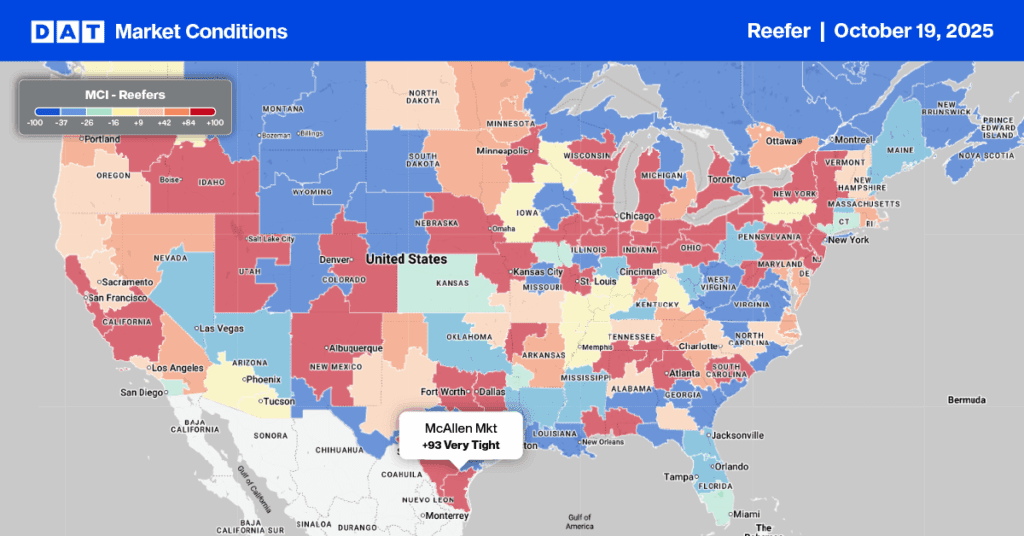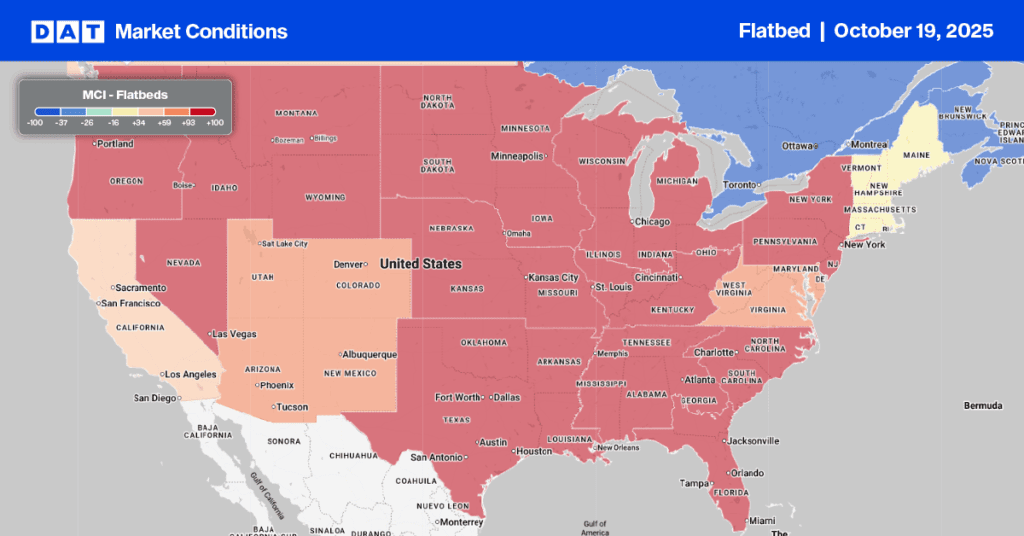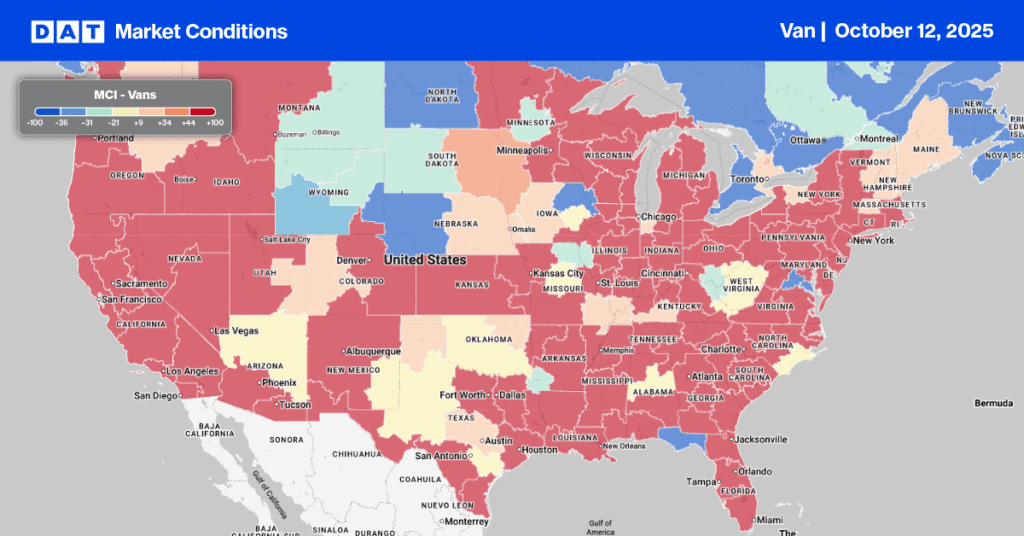Shippers and carriers say, “We have long memories” when the power dynamics change in freight markets. But according to research conducted by the MIT Center for Technology & Logistics (MIT CTL) in November 2020, strong shipper-carrier relationships in a soft market do not predict how carriers will perform in the next tight cycle.
As we enter the final stages of the current freight cycle, when capacity typically begins to tighten as demand improves (at least that’s what we expect to happen), many industry experts wondered if carriers would behave any differently now that shippers have driven down rates and clawed back some of the price hikes over the last two years.
Get the clearest, most accurate view of the truckload marketplace with data from DAT iQ.
Tune into DAT iQ Live, live on YouTube or LinkedIn, 10am ET every Tuesday.
Do carriers behave differently when driven down on price, or do shippers alter their thinking when carriers reject contract loads in preference to better rates elsewhere?
As we go to print, contract rates entering routing guides based on recent rate negotiations have steadily declined by around 10-12% over the last four months. They haven’t hit bottom yet either, and have a few months to go before we can conclude contract rates have leveled off.
Research methodology
The data for this research was obtained from an MIT partner company that provides logistics and transportation functions for its shipper clients. According to author, Graduate Assistant and Ph.D. candidate Angela Acocella at MIT, the partner company is not a brokerage but rather a managed services provider assisting its clients (shippers). Researchers analyzed 1.933 million dry van truckload freight transactions with a length of haul greater than 250 miles occurring between September 2015 to May 2019. A total of 71 shippers offered loads to 1,640 contracted carriers.
Who has the longest memory?
The MIT results suggest that carriers have short memories – they act like goldfish – when market conditions change. Shippers that “pay it forward” in soft markets with high pricing relative to the market or consistent volume do not necessarily reap better carrier behavior when markets tighten.
Put another way, shippers that pay above market prices in the soft market are not more likely to see high tender acceptance levels in the tight period. In addition, the converse holds: shippers that pay below market prices in soft market periods are not more likely to see acceptance levels decrease as the market tightens. Instead, carriers appear to be nearsighted.


